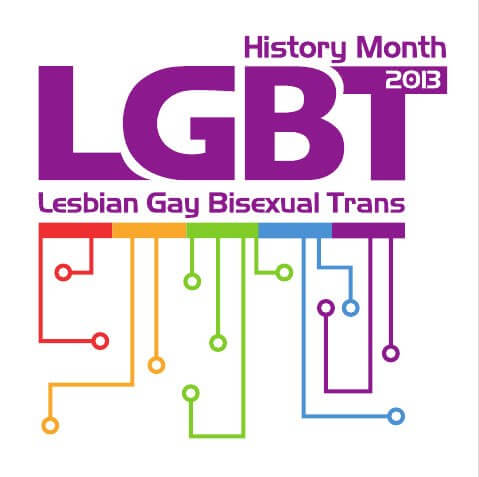
At Breathe Life Healing Centers, we are proud that our doors open to everyone who seeks help. This month, in honor of October being LGBT History Month, we’re especially thinking of our friends who struggle with addiction, trauma and binge eating who are also members of the LGBT community.
For LGBT clients who come to Breathe Life, the treatment is the same as for all other clients. However, says Mike Cohan of Breathe Life, it is crucial that the social aspect of their recovery is slightly altered to deal specifically with the sexual component. The first part of this means offering support during recovery. During their time at Breathe Life, LGBT clients can attend meetings just among the LGBT community. Breathe Life offers this not to segregate communities, but rather to provide an opportunity to talk about whatever they want, some of which they might not feel comfortable saying in front of non-LGBT people. (This service is provided for other groups, too, such as a group meeting just for women.)
But more importantly, making sure everyone is nurtured pervades the community at Breathe Life. So while specialty groups are offered, LGBT clients can expect inclusiveness regardless of their sexuality.
Within the walls of Breathe Life, the LGBT community has a great deal of support. But, as Cohan points out, “They need to learn how to set up a support system when they get back home.†He notices that for a lot of LGBT patients, socialization was a pre-existing problem. In bars, clubs, or sexual situations, “drugs and alcohol were ways to let their guard down.†Now they need to figure out how to reintegrate themselves into society; how to return to what they enjoy so they can occupy their time, hang out with friends, meet new people, and participate in meaningful relationships, without returning to the environments that encourage using drugs and alcohol. Relapse rates tend to be higher in the LGBT community, especially for gay males. So establishing how to approach recovery after treatment can help prevent relapse.
This is where the support system comes into play. In both of Breathe Life’s locations in New York and Los Angeles, there is much outside support for the LGBT population. Finding meetings to attend, an encouraging and understanding community, social activities that don’t center around drugs and alcohol – these approaches help people fit in again. “A lot of people from that population have been shunned in some way,†Cohan explains. “They’ve been bullied as kids, pushed away from their family, from society, and often suffer from trauma. When you’re introduced to alcohol and drugs, it can be a release and escape. It takes away the anxiety. It fuels the addiction.†Treatment at Breathe Life helps this community get clean, as well as support their emotional comfort and confidence.
Despite how difficult it may be to navigate treatment and recovery in addition to dealing with their sexuality, National LGBT History Month is primarily a time to celebrate. Because at Breathe Life, we see this community confront some pretty tough odds, and their strength is extraordinary. Cohan opens up about some of his experiences:
“I’ve had the privilege of working with people who were transgendered and who were addicted as well. Many of these people had gender identity issues, they had drug addiction, they had HIV and they were prostitutes….You would think dealing with four of [these issues], how could they do it? I saw them rise above it and they now have fruitful lives.â€
He continues, “That population is so damaged that you would think people would easily lose hope, but they have hope no matter what.†For a population that continues to fight for a voice and equal rights, we see every day just how strong this community can be. Breathe Life salutes and celebrates the successes, and opens its arms to those who need support. “No matter how much you feel you’ve been shunned from society or how low you are, no matter what, there is help for you.â€












